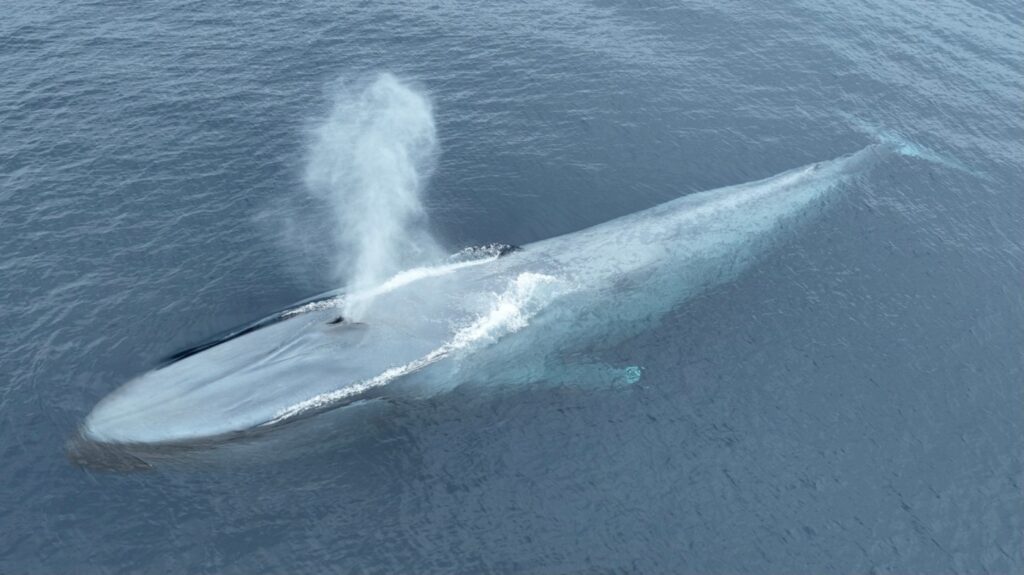
The summertime blues are back.
Blue whales, the world’s largest animal, are showing up in big numbers off the Southern California coast this season, a welcome return for ocean and wildlife enthusiasts who marvel at the massive sight of the endangered species just a few miles from shore, with sightings spanning from the South Bay to Dana Point in recent days.
Dana Wharf Whale Watching on June 21, the first day of summer, reported five blue whales spotted throughout the day, including the well-known Notcho. The female got the nickname because of her small, notched dorsal fin. She hasn’t been spotted locally since 2020.
“Just a few miles further offshore, we saw another blow, a second and then a third, as three additional blue whales followed behind Notcho,” Dana Wharf naturalist Laura Lopez said.
Related links
Elusive sperm whales hanging around OC coast
Blue whales cause shock and awe by flocking to Southern California coast
Video captures whale with missing tail near shore in Newport Beach
Did this surfer notice the 30-foot gray whale right under him? We may never know
11-year-old surfer recounts moment he was confronted by whale at Doheny, a scene captured on viral video – Santa Cruz Sentinel
They were all traveling northbound. Another blue whale was later spotted three miles from the Dana Point headlands.
“Never diving very deep, we could almost constantly see the blue glow from the body, tail and pectoral fins of this massive animal,” Lopez wrote in a recap.
Unlike gray whales, which have a predictable migration pattern between their feeding grounds of Alaska and breeding lagoons in Mexico, the behemoth blues whales are unpredictable, some years showing up in big numbers, other years opting for other areas to hang out and feed.
Oftentimes, they can be spotted foraging for food off Southern California if the krill supply is plentiful. The sleek-bodied blue whales can reach up to 100 feet long and feeds on 2 tons to 4 tons of krill a day.
Regulations in recent decades have helped protect the whales, which were hunted to near extinction. Their numbers have rebounded to nearly 20,000 across the globe, with 2,000 or so that feed off the coast of California during summer months, according to experts.
Newport Coastal Adventure Capt. Ryan Lawler said the blues seem to be traveling, but suspects their food source must be near and they are in search of a feast.
“We’re excited for a long, productive summer of blue whale sightings,” he said. “No company can guarantee they will see a blue whale. It’s an endangered species, so it’s rare. But one of the best places to see blue whales is off the Orange County coast.”
